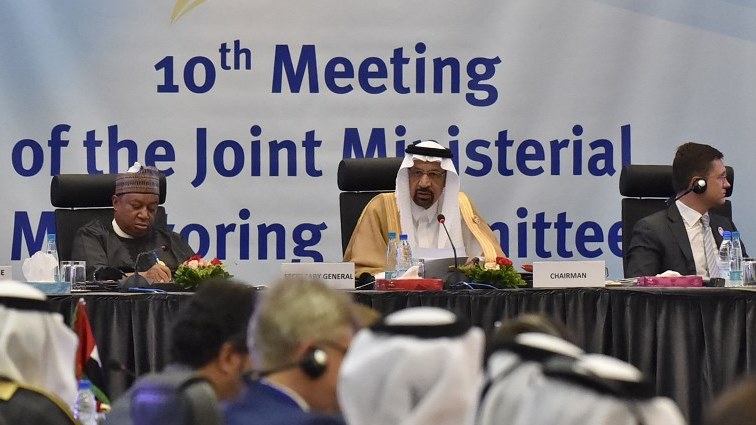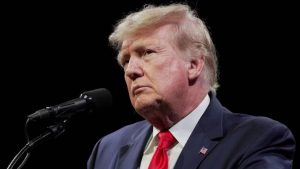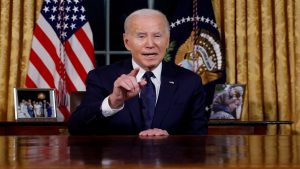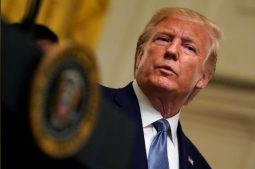OPEC, the powerful Vienna-based oil producing cartel, stands accused by US President Donald Trump of inflating crude prices and hurting consumers.
Benchmark Brent oil soared this week to a four-year peak above $82 per barrel, prompting Trump to urge OPEC to stop “ripping off” the world with high fuel prices.
Despite the bump higher, oil remains far below record peaks of above $147 struck in 2008, before the global economic downturn sparked a collapse in demand.
The oil price has, however, almost tripled since early 2016.
So what is the role of this influential institution which wields so much power over a commodity that greases the wheels of the world economy?
The Organization of the Petroleum Exporting Countries — which comprises 15 member nations from Africa, the Middle East and Latin America — pumps about 40 percent of global oil supplies.
The grouping was originally formed in 1960 with five members: Iran, Iraq, Kuwait, Saudi Arabia and Venezuela.
The cartel currently also comprises Qatar, Libya, United Arab Emirates, Algeria, Nigeria, Ecuador, Angola, Gabon, Equatorial Guinea and Congo.
The institution’s objective, according to its website, is “to coordinate and unify petroleum policies among member countries in order to secure fair and stable prices for petroleum producers”.
OPEC, which has been based in Vienna since 1965, rose to prominence in 1973 when Arab members organised an oil embargo against Israel-supporting Western nations.
The institution convenes for regular meetings to assess the state of supply and demand in the marketplace, and its pronouncements still have the ability to spark major swings.
Prices rebounded this week after OPEC and non-OPEC members meeting in Algiers expressed satisfaction over a “healthy balance between supply and demand”.
Over the last ten years or so, experts say that OPEC’s grip on the market has nevertheless weakened due to booming US shale production, strong Russian output, and the rise of renewable energy.
“There is no question that OPEC’s share of world oil production — and therefore its power — has gone down over the past decade,” Riccardo Fabiani, analyst for consultancy Energy Aspects, told AFP.
OPEC has acted repeatedly to influence the price of crude oil via collective production targets, in order to protect the precious revenues of its membership.
Most recently, the cartel joined forces with ten non-OPEC producers including Russia to curb their collective output in late 2016.
The move was largely to counter surging shale energy production in the United States, a key factor which had helped push Brent oil under $30 per barrel earlier that year.
“Prior to the 2016 output pact, OPEC found itself playing second fiddle to the US shale boom,” noted PVM analyst Stephen Brennock.
The so-called OPEC+ group agreed a milestone deal to trim production from January 2017 by 1.8 million barrels a day to clear a global oil glut.
The strategy has worked to some extent, with Brent prices jumping from below $50 a barrel in late 2016 to the current level of about $80.
“Saudi Arabia, the group’s kingpin, has been unofficially targeting an oil price between $70-$80 per barrel and this is where we find the current state of play,” noted Brennock.
OPEC pledged in June to boost oil production to meet growing global demand, despite the prospect of fresh US sanctions on Iran’s crude exports.
OPEC is constrained by the very low amount of spare capacity to increase output in a tight market — which already faces threats from unplanned outages, low investment levels and unpredictable geopolitical unrest.
“Everyone is waking up to the reality that its ability to bring additional volumes when needed is severely curtailed by outages, a lack of investment and political instability affecting operations in several producing countries,” noted Fabiani.
He argued that OPEC remained a established “fact of life” that would always hold sway over prices.
“OPEC has been around for so long that the debate on its merits and faults has now become irrelevant,” Fabiani said.
“It’s a fact of life that most market actors have learned to live with.”






